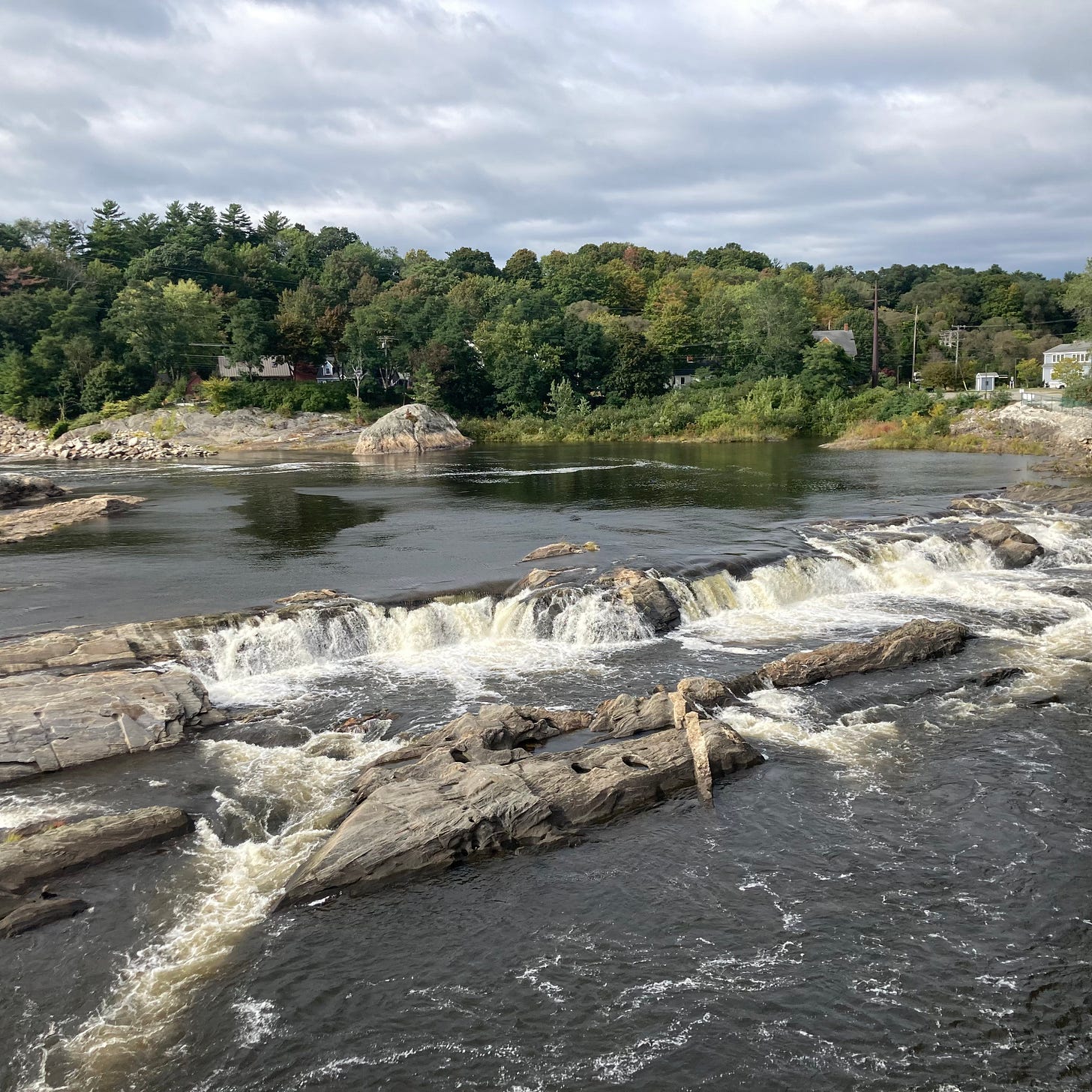Before the Thanksgiving leftovers have a chance to be warmed up and savored, before all the casserole dishes are put away, it arrives—Christmas. My email is flashing with enticements: The Perfect Gift! Doorbuster Deals! Small Business Saturday! Black Friday Savings!
Though inflation may put a crimp on holiday spending for the less affluent, Bloomberg news reports in a piece titled, “The Rich are Spending on Luxury Goods Like It’s 1999,” that luxury items are still in high demand this season.
“Luxury is not a proxy for the general economy,” Guiony said. “We end up selling to affluent people and they have a behavior on their own, which is not necessarily totally aligned with economics.”
It’s hard to contemplate all this consumption in the face of what we know about how quickly our voracious consumer behavior is depleting the earth’s natural resources. Presently, the rate of global consumption is a staggering 1.75 Earths’ worth of resources per year, or 75% more than the planet can replenish.
It’s discouraging and frightening that despite all we know about this depletion of natural resources, about the carbon that manufacturing and transporting all these goods emits, about the pollution that accompanies the extraction and mining and manufacturing of goods, about the loss of habitat that results from all this, we are still hell bent on that Dior jacket or that 5,000 square foot house, or that forty-foot yacht.
Surprisingly, a piece about Adam Smith in the current issue of The New York Review of Books, compellingly titled “Empathy and the Economy” gives testimony to why it is, 300 years later, those Gucci bags are selling like hot cakes. The author quotes Adam Smith:
Why do we seek wealth, he wondered, losing ourselves in “all the toil and bustle of the world?” It is not to supply us with necessities, for “the wages of the meanest laborer can supply them.” What we want from wealth is “to be observed, to be attended to, to be taken notice of with sympathy.” The reason the rich man glories in his riches is that he “feels that they naturally draw upon him the attention of the world.” He is “fonder of his wealth, upon this account, than for all the other advantages it procures him.”
Smith, in 1776, was writing about the economic danger this “wish for the attention of the world” might cause to Englishmen. He feared it would lead them to make bad, short term economic choices which would later lead to their loss of wealth.
He even wrote that slavery and the colonization of the New World were risky prospects for the English as their wish for power and esteem would override their economic judgement and again lead to lost wealth. His warnings to the English about how the lure of attention wealth affords can blind us to the consequences of obtaining and spending that wealth are crushingly applicable to us today. And equally as crushingly, unheeded.
Look at me, I have a Gucci bag, a Dior jacket, a Cartier watch. I am somebody to reckon with. I am SOMEBODY. At all costs!!
It is of note to me how similar Adam Smith’s ideas about man’s needs to be seen, to be “taken notice of with sympathy ( (for Smith, sympathy meant empathy, a word which, curiously, had not yet been coined) were to those of the Austrian psychoanalyst Heinz Kohut. Kohut was a revolutionary thinker in his own right. In the nineteen seventies, a hundred years after The Wealth of Nations appeared, Kohut stole the show from Freud with his new ideas about how a self forms. He is known as the father of self-psychology and his thesis is that to develop healthy self esteem we all need what he called “mirroring” around our unique expressions of self. Lacking this mirroring from people familiar and comfortable with who we are, pathological narcissism develops.
Kohut stopped short of examining the role culture played in shaping which traits and behaviors would light up the eyes of a parent or a friend and which ones would cause them to turn away.
The question that has clung to me all week like a thistle caught on my sleeve is: who or what do we have to blame for the climate crisis and the cascade of ecological collapse we now face? Is it the fault of the steam engine, of factories and railroads and industrial farms, of the automobile and the assembly line and more recently the internet? Can we therefore solve the crises through more technological inventions: the heat pump, the solar array, green hydrogen, 3D printed houses, carbon air capture?
Or is it the result of ideas we have about who we are as humans and what we need from others? Is it in large part because our culture has shaped our minds so that we associate our wealth and ownership of stuff with being acknowledged by our neighbor as SOMEBODY?
The answer probably is not either or but both and. I fear that we put too much value on the technological side and not enough on the side of the ideas we have about ourselves. If this area of self-worth and the contingent ideas about what it means to be a valuable human is the place we need to look for answers to the ecological crisis we are facing, then count me in for trying to imagine a society where self-worth comes not from wealth but from what and how we treat our neighbors and how we live in harmony with the needs of the trees and the birds and the air and the water.
And the first place I will look for models for this kind of society is in the forest where the spirits of the Abenaki still roam. They lived here for 10,000 years without destroying any of our ecosystems. That is success!! That is wisdom. That engenders great respect in my heart.
Next week I will tell you the story of what the Wabanaki, in 1637, thought about the settlers when they observed from the banks of the Androscoggin River just below Pejepscot Falls the settlers take 40 barrels of salmon and more than 90 kegs of sturgeon in three weeks time. And I will tell you what the settlers thought when the Wabanaki objected to their haul.
And from the point of view of our current crisis we can decide, reader, which of these two deserve to be seen and admired?
Hooray for Ragamuffins!!
With gratitude to all of you, readers, for “taking note” of the me that writes these blogs, for extending to me your “sympathy” . Now, with all this sympathy coming my way, I don’t need to dream about the pleasure of strutting down Maine Street sporting a new Gucci bag!








A colleague of my daughter’s from India was confused by his first Thanksgiving in America, conflating Thanksgiving Thursday with Black Friday. He commented on how unusual it was to have a holiday that celebrated consumerism! Thanks for this important reflection and reminder. I look forward to the essays to come.
And you didn’t need to contribute to the depletion of forests to get the recognition! Bravo! Beautiful piece! Thank you. I encourage you to see Mad Horse’s “Straight White Men” -- a testosterone-filled Christmas (widowed father with three adult sons) dealing with some of your questions (no answers) and the destruction of relationship when others see you and have expectations of you that you can’t fulfill (even straight white men!). And Mad Horse does it with terrific acting and an earth-sustainable -- but maybe not theater-sustainable -- model of “pay what you can/want”!